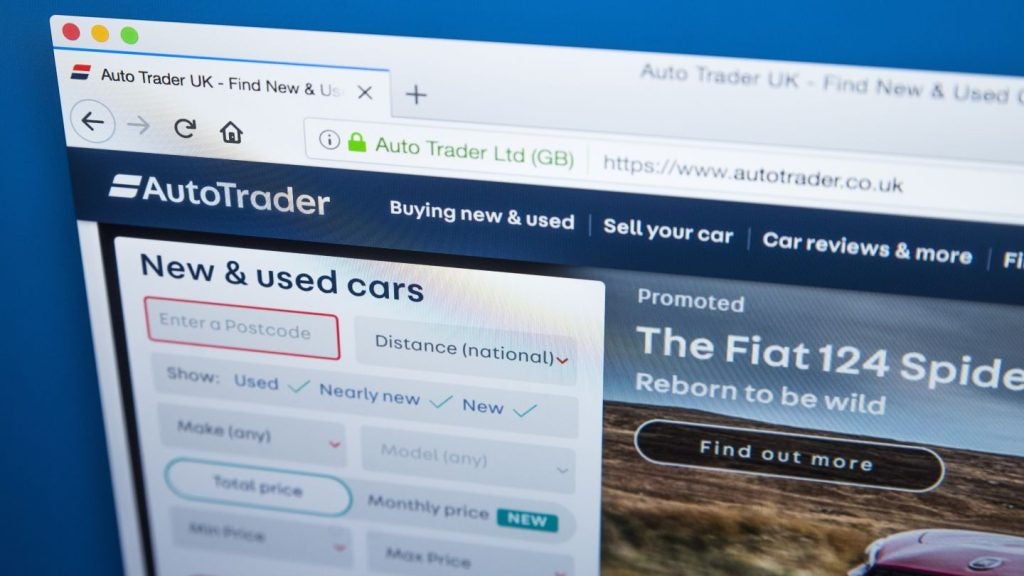Peter McKenna of AMS explains the benefits of providing Full Cover GAP, i.e. the actual shortfall amount between a customers’ invoiced purchase price and their motor insurance settlement rather than Market Value Only GAP, which should be avoided if GAP is not to become the next mis-selling scandal.
The popularity of GAP insurance has grown dramatically over past five years and has become an essential and profitable insurance product for most dealers, particularly since the demise of PPI.
GAP sales penetration for franchised dealers in the UK is now averaging around 25% with some dealer groups achieving 65%-plus.
The consensus within the industry is that the average GAP penetration level in the UK will match those in the US of 70% within the next five years.
Increased consumer awareness has made the GAP market more competitive, particularly with the ever-increasing growth of cheaper direct online GAP, but generally without the same level of cover.
Taken together with new GAP compliance requirements of the Financial Services Authority (FSA)/Financial Conduct Authority (FCA), the choice of which GAP products to sell and how, within a much more compliant sales process, is critical for the motor dealer.

US Tariffs are shifting - will you react or anticipate?
Don’t let policy changes catch you off guard. Stay proactive with real-time data and expert analysis.
By GlobalDataThe FSA/FCA GAP sales compliance rules specify how dealers must explain to their customers exactly what is covered and excluded under a GAP insurance product and, most importantly, how a claim is calculated using Glass’s Guide in relation to Market Value Only GAP products. This can be viewed at: fsa.gov.uk/smallfirms/your_firm_type/motor/gap.shtml
Unfortunately, the majority of GAP providers offer limited cover Market Value Only GAP which, if not properly explained to a customer up front, can result in mis-selling complaints.
No longer will the dealer be able to tell the customer a GAP policy will pay the difference between a motor insurance settlement and the original invoiced cost of the vehicle in the event of a write-off, as it won’t under a Market Value Only GAP.
As motor insurers rarely if ever payout Glass’s Guide Retail (particularly if the customer also has GAP cover), customers will not receive the GAP settlement anticipated and could still owe more on their finance agreement.
Those dealers who sell Market Value Only GAP will invariably increase their exposure to mis-selling complaints, unless clearly explaining to the customer up front and documented with a correctly worded demands and needs.
Most Market Value Only GAP policies, also contain a number of other claim reduction/rejection clauses that the dealer should be aware of, and which the FCA may consider unfair and even onerous in the event of a complaint.
The old adage: "They give it to you in the big print but take it away in the small", is relevant here, for example:
Limited claim period: Unrealistic claim period of 30 days, particularly if the vehicle was stolen.
Pre-approval: "In the event of a total loss you must not accept any offer from the vehicle insurer without the GAP insurers’ permission". This means they can completely reject a claim under this clause. Also, most customers will have accepted the insurer’s settlement before making a GAP claim.
Insured value: Another term for market value, i.e. the policy will only cover the GAP between the invoiced dealer price and the insured value (as set by the motor insurer, but meaningless unless the insurer discounted the premium), or the market value, whichever is the greater. As the insured value will always be less than the market value, the customer will not receive the actual ‘GAP’ amount between the insured value and the original net invoiced purchase price, but the smaller ‘GAP’ between the higher market value and the original net invoiced purchase price.
Finance settlement: "We reserve the right to calculate any rebate for early repayment of the outstanding finance agreement provided for under the Consumer Credit Act 1974". If the GAP insurer believes the customer’s finance settlement is too high (for any undeclared reason), they reserve the right to recalculate their own lower settlement, which will result in a much lower, or nil, GAP settlement, resulting in an outstanding balance still owed to the finance company by the customer post-GAP settlement.
Other effects of Market Value Only GAP clause: part exchange: "If you part exchange a vehicle and the price received for the part exchange vehicle exceeds that shown in Glass’s Guide valuations, then the amount paid in excess of the Glass’s Guide valuations for the trade value price will be deducted from your claim".
Purchase price: "Your settlement will be reduced by any amount the original purchase price of your vehicle exceeds its retail market value as defined by Glass’s Guide at the time of purchase".
This is just a small selection of the more onerous terms and conditions.
Some vehicle manufacturers having experienced increased customer complaints are now offering full payout GAP, but with limitations. However, the price charged for these products is far too expensive as their current underwriters have no experience of full-payout GAP and ‘load’ the cost accordingly in anticipation of much higher claims.
The bottom line for dealers selling GAP insurance to ensure GAP doesn’t go the way of PPI, can be summarised as: Avoid selling Market Value Only GAP: Only offer GAP products that provide full payout, not limited cover. Some GAP providers may offer full-payout GAP but charge a lot more. Alternatively, they may also state: "We will never invoke the market value clause". If so, why have it?
Small print exclusions: Avoid GAP products which use myriad small-print claim reduction/rejection clauses which could be considered ‘unfair’ by the FCA.
Check out the underwriter: Avoid providers who use smaller, offshore underwriters who may not necessarily provide the same consumer protection under FCA regulations.
You can check out the underwriter on the FSA register at: fsa.gov.uk/register/firmSearchForm.do.
For most offshore insurers the FSA/FCA register states: "This firm is authorised or registered by its home state regulator[s] (other regulator[s]within the European Economic Area but outside the UK) below and may be subject to limited regulation by the Financial Conduct Authority".
Customer refunds: Avoid GAP providers which don’t offer straight pro rata refunds on customer cancellations or the facility to transfer a policy if the vehicle is changed within the policy term.
Sales process: Ensure your sales process is FCA complaint with trained sales staff who fully understand the GAP products they are selling and only offer the ‘right’ GAP product, cover and term, which meets the customers’ real needs.
Peter McKenna is managing director of the AMS Group








